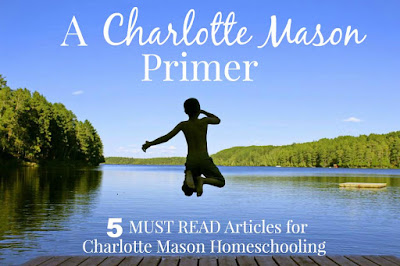She was a pioneer, an educator who blazed a trail of learning that is still being traveled today. Her ideas were shaped in 19th-century England during a time when children were to be seen and not heard. She longed for more. She longed to develop the whole child; to curate all of their gifts not just the intellectual ones.
While I proudly embrace an eclectic, a la carte style of homeschooling, the methodologies of Charlotte Mason are woven into each piece of our day.
(This post contains affiliate links. Please see my disclosure policy for full details.)
And that, truly, is what makes a Charlotte Mason education so worthwhile. It is not a curriculum. It is not a one-size-fits-all endeavor. It is a way of teaching. It is a framework; an ideology that any homeschool family, no matter their educational philosophies and curriculum choices, can embrace.
For those who are new to homeschooling or who would like to venture into a more whole-child approach to learning, here are five MUST READ articles that will help steer your course.
Must-Read Articles
7 Characteristics of a Charlotte Mason Education- If you are unfamiliar with the basic tenants of a Charlotte Mason education, this is a great launching point. It gives a wonderful, but brief, overview of the core components and provides other helpful links to books and online resources.
The Process of Shaping I Am, I Can, I Ought, I Will- Charlotte Mason was a believer in shaping a whole person. This article unpacks her famous student motto, "I am, I can, I ought, I will" and looks at how a child's mind is meant to be shaped not filled.
What is a Living Book?- While Charlotte Mason did not advocate any particular curriculum, she encouraged a living book approach to learning as opposed to a textbook style. This is Day 12 in a comprehensive, 31-day series on the Charlotte Mason method. It provides a great introduction to what a living book is and what it is not.
What is a Living Book?- While Charlotte Mason did not advocate any particular curriculum, she encouraged a living book approach to learning as opposed to a textbook style. This is Day 12 in a comprehensive, 31-day series on the Charlotte Mason method. It provides a great introduction to what a living book is and what it is not.
Ultimate List of Living Book Curriculum- Pulling together dozens of living books for a particular subject or unit can be time-consuming and difficult. Why invent the wheel if someone has already done it for you. Here is a list of the top pre-packaged living book curriculums that adhere to the Charlotte Mason way.
Charlotte Mason Resources: An Ultimate Homeschool Resource List- A Charlotte Mason education can be FREE or almost free. All you need is a library card, a notebook, a set of colored pencils, and time. But, a set of "jazz hands" never hurt too. This article provides dozens of links for free CM-esque resources from around the web including copywork pages, artist studies, and nature study printables.
More Worthwhile Links and Resources
- 5 Days of Notebooking 101
- 10 Reasons Why I Choose a Living Literature Approach
- 50+ Summer Nature Study Themes
- Charlotte Mason Education Pinterest Board
- Copywork Pinterest Board
- Notebooking Pinterest Board
- A Charlotte Mason Companion: Personal Reflections on the Gentle Art of Learning
- For the Children's Sake: Foundations of Education for Home and School
- A Charlotte Mason Education: A Homeschooling How-To Manual
One final thought
Scripture reminds us that Jesus increased in wisdom (head knowledge), stature (physical form), and favor with God and man (relationships with God and other people). He grew more whole. This "whole child" growth is the very core of the Charlotte Mason way. And while all of her philosophies and methods might not harmonize with every homeschool family, her gentle tugging of these three Christ-like maturities are worth sprinkling into any curriculum and homeschool day.
For more great articles about homeschooling, be sure to head to iHomeschool Network.




No comments:
Post a Comment